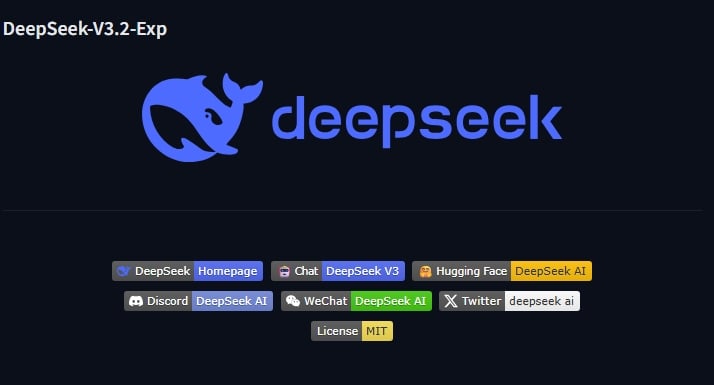
The AI Mirage: When Consultancies Sell Magic Beans in $440K Reports
Accenture's AI rush and Deloitte's hallucinated citations expose a dangerous trend, enterprises paying premium rates for Blackbox AI systems with zero accountability.
In today’s corporate landscape, we’ve seen concerning reports of companies where executives, captivated by AI hype, have eliminated their business intelligence teams and replaced them with AI agents built by major consultancies. These same consultants confidently promise “totally accurate and reliable” systems, claiming 95% accuracy rates. However, as industry observers have pointed out, such claims often mask significant limitations and risks.
Welcome to the great consultancy AI gold rush, where consulting firms are aggressively pushing AI-based product solutions into enterprises with minimal oversight and maximum promises.
The $440K Hallucinated Government Report
This scenario perfectly captures the core problem: would you board an airplane where the CEO’s inexperienced relative promised to land it safely 95% of the time? Yet that’s exactly what’s happening across corporate America, and governments worldwide.
Deloitte was recently forced to refund $291,000 to the Australian government ↗ after including AI-generated hallucinations in a $440,000 report on the country’s welfare system. The report contained fake citations, phantom footnotes, and even a made-up quote from a Federal Court judgment. When called out, Deloitte’s defense was telling: they blamed “human error” rather than AI misuse.
But as The Register reported ↗, the evidence was overwhelming, the consultancy had used Azure OpenAI GPT-4o “to fill ‘traceability and documentation gaps.’” Translation: they used AI to write critical parts of a high-stakes government report and got caught when an academic noticed citations to nonexistent professors and fabricated court rulings.
Accenture’s All-In AI Bet
While Deloitte was getting caught with AI hallucinations, Accenture has been aggressively pursuing AI acquisitions ↗ and partnerships. The company recently laid off 11,000 staff as part of what CEO Julie Sweet called “exiting on a compressed timeline people where reskilling, based on our experience, is not a viable path for the skills we need.”
In other words: clearing the decks for their AI-powered future.

At the same time, Accenture announced a strategic alliance with Google Cloud ↗ to deliver “Gemini Enterprise agentic AI solutions”, touting “over 450 engineered agents built by Accenture” available through Google Cloud Marketplace. They’re positioning themselves as AI implementation experts, but the reality on the ground suggests a different story.
The Consultant-Client Accountability Gap
The fundamental issue isn’t whether AI can replace BI teams, the question is who’s accountable when it fails. In traditional consulting engagements, if you paid $440,000 for analysis and got fabricated research, you’d have legal recourse. With AI systems, consultancies are building plausible deniability into their contracts.
As the Sydney Morning Herald noted in their coverage ↗, “Professional services firms’ reliance on AI has also coincided with a hollowing out of consultants who would traditionally ensure the quality of the reports.” The pyramid model of consulting, where junior staff did the grunt work while learning the craft, is being replaced by AI outputs that may or may not be verified.
This creates what one Australian senator called “a human intelligence problem.” As Senator Deborah O’Neill told the Australian Financial Review, “Too often, as our parliamentary inquiries have shown, these consulting firms win contracts by promising their expertise, and then when the deal is signed, they give you whatever [staff] costs them the least.”
The 95% Accuracy Fallacy
Let’s examine why “95% accuracy” is such a dangerous promise. This translates to 1 in 20 answers being incorrect. The problem is there’s no way to know which one.
In business intelligence, that’s catastrophic. A 5% hallucination rate might work for generating marketing copy, but when you’re making multimillion-dollar decisions about product metrics, customer behavior, or financial forecasting, one wrong answer in twenty could mean your company bets on completely wrong data.
Too often, executives view BI teams as expensive overhead feeding data into query systems and generating reports. In reality, skilled BI professionals guard against GIGO (Garbage In, Garbage Out). The best ones catch when numbers appear correct but aren’t.

Systemic Risk in High-Stakes Environments
The BI Agent replacement scenario highlights a broader pattern: consultancies are selling AI solutions for high-stakes business functions while carefully avoiding accountability for when those systems inevitably fail.
This isn’t theoretical, we’re seeing real-world consequences. As the Sydney Morning Herald reported, Deloitte’s AI-tainted report concerned Australia’s “Targeted Compliance Framework, the government’s IT-driven system for penalizing welfare recipients who miss obligations.” That’s literally life-altering decisions being made based on potentially hallucinated analysis.
For government contracts especially, this represents a worrying trend. One academic who spotted the Deloitte fabrications told the AFR: “You cannot trust the recommendations when the very foundation of the report is built on a flawed, originally undisclosed, and non-expert methodology.”
The Hollowed-Out Quality Control Pipeline
What’s particularly alarming is how this aligns with broader consulting industry trends. As Harvard Business Review noted in a recent analysis ↗, “AI is upending that model. Generative AI tools, predictive algorithms and synthetic research platforms are rapidly automating the very tasks that once filled junior consultants’ weeks.”
Traditional consulting relied on a pyramid structure where junior staff learned by doing the research and analysis work. Now, that foundation is being replaced by AI with minimal oversight, and the results are predictable.
As IP lawyer Sylvie Tso told the Sydney Morning Herald: “The multimillion-dollar question is that, in future, who is going to train the junior level of professionals?”
The Vendor Accountability Black Hole
The fundamental accountability problem comes down to this: when consultancies sell AI solutions, they’re essentially offering black box systems with built-in plausible deniability. When a BI Agent hallucinates numbers that lead to bad business decisions, who’s responsible?
The consulting firm can point fingers at the AI model. The AI vendor can point fingers at the implementation. The client is left holding the bag, often having to rehire their former BI team at significantly higher costs.

A Path Forward: Demanding Transparency
The solution isn’t abandoning AI in enterprise contexts, it’s demanding proper safeguards and accountability frameworks. Here’s what enterprises should be asking for:
Transparency Logs: Organizations should demand audit logs that show how AI systems arrive at their conclusions. AI systems should provide visibility into their reasoning, not just outputs.
Human-in-the-Loop Requirements: Critical business functions should maintain human oversight, particularly during the transition period as organizations learn which use cases AI handles well versus poorly.
Clear Accountability Frameworks: Contracts should specify exactly what happens when AI systems produce incorrect or harmful outputs. Who’s financially responsible? What’s the remediation process?
Independent Verification: Third-party testing of AI systems before they’re deployed in production environments, particularly for regulated industries or high-stakes decisions.
The Growing Regulatory Backlash
We’re already seeing political consequences. As Greens Senator Penny Allman-Payne told the AFR about the Deloitte incident: “This report was meant to help expose the failures in our welfare system and ensure fair treatment for income support recipients, but instead Labor [is] letting Deloitte take them for a ride.”
The backlash is justified. When consulting firms charge premium rates for expertise, then deliver AI-generated content without disclosure, they’re violating the fundamental trust relationship with clients.
The Future of Consulting in an AI World
As Andrew Binns argues in Forbes ↗, “Management consulting can reinvent for the age of AI by focusing on human system challenges.” That means moving beyond selling AI as a magic bullet and toward helping organizations navigate the complex human and organizational changes required for successful AI adoption.
The real value in consulting has always been judgment, not just analysis. As Binns notes, “When they say: ‘Analyze this market and tell me if we should invest in launching a new product.’ What the client really means is: ‘Can you make my bosses believe my decision is the right one?’”
Buyer Beware
The AI consultant gold rush represents one of the most significant accountability gaps in modern business technology. Companies are being sold AI solutions with massive promises but minimal responsibility when things go wrong.
This scenario typically plays out in one of two ways: the AI system fails and internal teams take the blame, or the system fails and organizations end up rehiring their former BI teams at significantly higher costs.
The warning signs are clear. Organizations buying AI solutions from consultancies need to ask the hard questions about accountability, verification, and what happens when, not if, the AI gets it wrong. Because in the world of enterprise technology, you often get what you inspect, not what you expect. And when you’re paying consultant rates for AI output, you’d better have someone inspecting very carefully.


